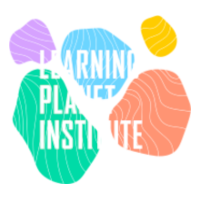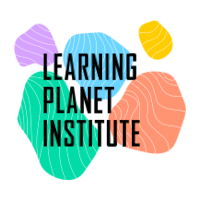Recent evaluations conducted by the Haut Conseil de l’évaluation de la recherche et de l’enseignement supérieur (Hcéres) (High Council for the Evaluation of Research and Higher Education), which reviewed the five-year programme of the AIRE Master’s and the FIRE Doctoral School, and the Agence Nationale de la recherche (ANR) (French National Research Agency), which assessed the mid-term report on the establishment of the EURIP Graduate School combining these two entities, have reached converging conclusions. The evaluations highlight the programmes’ unique interdisciplinary approach, integration of sustainability issues in curricula, research excellence, innovative, real-world-based teaching methods, individualized student support, and internationalized pathways. These strengths define the Institute’s identity and serve as both a foundation and a springboard for our ambition to build a global university.
Interdisciplinarity as a Signature Feature
The Master of Interdisciplinary Approaches in Research and Education (AIRE) and the Frontiers of Innovation in Research and Education (FIRE) Doctoral School offer unique programmes integrating interdisciplinarity as a core objective and content component. Partnering with Université Paris Cité (UPCité) for the Master’s programme and both UPCité and Université Paris Sciences et Lettres (PSL) for the doctoral school, the Learning Planet Institute provides groundbreaking educational opportunities. The Hcéres report emphasizes the distinctive nature of the FIRE Doctoral School’s exceptional status, granting accreditation in 22 of the 24 European Research Council specializations: “UPCité has an original and remarkable tool for interdisciplinarity. This doctoral programme leverages its exceptional status to promote, develop, and support interdisciplinary thesis topics.”

Strong Research Integration
Another key feature emphasized in the reports is the significant role of research-oriented education. The academic programmes dedicate 55% of total hours at the Master’s level and 300 hours at the doctoral level—far exceeding regulatory requirements. This commitment is reflected in initiatives to bridge the two curricula through the Paris University School of Interdisciplinary Research (EURIP): “Joint Master-Doctorate activities facilitate the continuation of AIRE Master students into doctoral studies.” The Institute also prioritizes open science training as part of its programmes.
Embedding Sustainability in Education
Teaching on sustainability challenges remains scarce across higher education institutions. However, the Learning Planet Institute is a forerunner in this domain, incorporating sustainability into its curriculum through courses and thesis topics. The Hcéres report notes: “Topics related to sustainable development and ecological change are rare in Master’s programmes, with some exceptions like the AIRE Master […].” Similarly, “FIRE Doctoral School stands out for integrating sustainability considerations into thesis topics and doctoral training.”
Innovative Teaching Methods
By incorporating peer learning, project-based approaches, research-driven activities, tool prototyping, and co-created curricula, the AIRE Master and FIRE Doctoral School foster student autonomy and reflective capacities. The AIRE Master programme’s report highlights: “It enables students to master concepts and translate them into prototypes to foster innovation experiments in fields like virtual reality, robotics, artificial intelligence, and machine learning.” And also: “The institute’s equipped spaces, including video conferencing systems, VR facilities, and a fab lab, further enhance project implementation.”

Building a Supportive Community
The sustainable campus on Rue Charles V in Paris fosters peer interaction. Hcéres remarks: “Few doctoral schools have organized dedicated spaces to encourage social bonds among doctoral candidates. FIRE is one such example. […] The shared space gives the FIRE Doctoral School a clear identity and builds community spirit, even among students from diverse academic teams.”
Individualized and Compassionate Support
From application reviews to post-graduation follow-up, the Institute offers comprehensive student support. Hcéres underscores FIRE’s rigorous selection process involving international experts and individual feedback to candidates. Doctoral candidates are closely monitored by Individual Monitoring Committees (CSI), “which includes the two thesis supervisors and two mentors with complementary expertise, ensuring the genuinely interdisciplinary nature of the research project.”
For the Master’s programme, the report emphasizes the “analysis of graduates’ employability and further studies, based on follow-up surveys on professional integration.”
The reports also commend the Institute’s attention to diversity, inclusion, and well-being, particularly for doctoral students: “The doctoral programme has developed various support and adaptation measures to accommodate the diversity of candidates. Specific provisions are made, notably for the validation of prior learning and for welcoming doctoral students with disabilities. Monitoring committees also pay close attention to the well-being of doctoral students […].”

Internationalization as a Strength
Through partnerships with foreign universities such as Tsinghua University in China and/or via scholarships supporting mobility (Bettencourt Schueller Foundation, SMARTS-UP, EURIP), a growing number of international students join the AIRE Master programme annually, with foreign students comprising 58% of M1 cohorts in 2019-2020, 77% in 2020-2021, and 78% in 2021-2022. Courses are taught entirely in English, providing essential linguistic skills for global careers.
Similarly, FIRE Doctoral School facilitates international mobility: “the Learning Planet Institute provides ‘mobility’ grants to all its doctoral students […] through various funding programmes (IdEx, SMARTS-UP)” and supports “participation in national or international conferences or extended stays in international laboratories.”
The international panel of experts at the Doctoral School, the leadership’s close ties with the European university project Circle U. on new training methods, and the availability of a “support service for international doctoral students to assist with administrative and logistical matters” are all factors that enhance the attractiveness of these two academic pathways.
Preparing for Professional Realities
The programmes emphasize competency-based learning, long internships, project portfolios, and entrepreneurship training. The AIRE Master offers extensive internship opportunities (21 weeks in M1 and 39 weeks in M2 within research laboratories and companies or work-study periods) and allocates substantial ECTS credits to practical experiences and entrepreneurship-related courses (54 credits out of the 120 required to complete a Master’s degree, 14 credits for entrepreneurship and project management).
Partnerships with academic and non-academic organizations reinforce territorial and socio-economic relevance: “The AIRE Master’s takes into account the social, economic, and cultural needs of the region, as evidenced by the participation of social and economic actors from the City of Paris in the graduate school’s academic council and the involvement of 37 professionals in the training programme, contributing a total of 433 hours.” Furthermore: “The doctoral programme focuses on enhancing the value of a doctorate from both academic and professional perspectives. The FIRE Doctoral School establishes strong ties with non-academic partners who fund a significant number of doctoral scholarships. The incorporation of socio-economic needs into doctoral training is excellent and manifests through various concrete actions: funding of theses by startups, foundations, and private companies, the presence of socio-professional actors in the doctoral school’s council, the dissemination of job offers through email or social media, transversal training, scientific clubs, etc.”
These partnership dynamics are also highlighted in the ANR report on the creation of the EURIP Graduate School: “The EURIP programme has gained significant momentum, as evidenced by… partnerships both in France and abroad, and the growing number of mentors from partner institutions who are now part of EURIP. […] EURIP also has an entrepreneurship programme […]”
Equipping students to become “not the best in the world, but the best for the world” (François Taddei, Learning Planet Institute Founder and CEO) remains the Institute’s mission. The outstanding evaluations by Hcéres and ANR validate the team’s efforts, support its vision, and encourage us to affirm that the uniqueness of our programmes contributes to the building of a sustainable world. They inspire confidence in advancing toward the creation of a global university.
Find out more about our academic programmes:
- EURIP Graduate School
- AIRE Master – Interdisciplinary Approaches in Research and Education
- FIRE Doctoral School – Frontiers of Innovation in Research and Education







